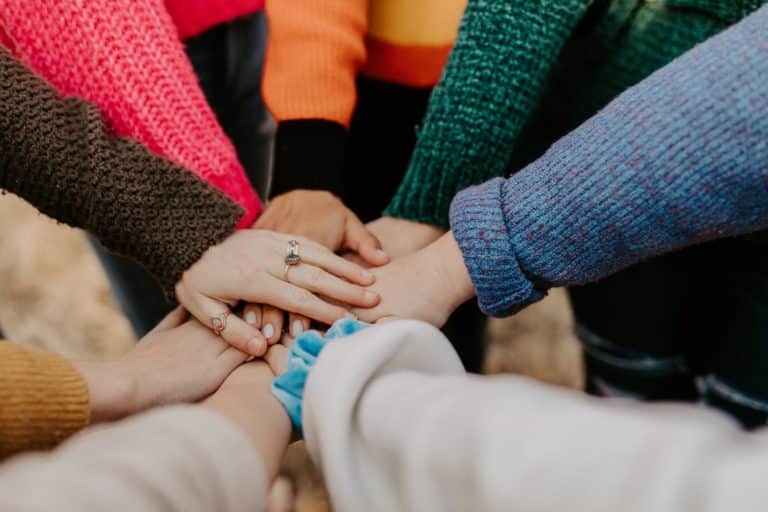You may think that you have not experienced significant trauma that could be a determinant to your future, even when you have. Many individuals experience little amounts of trauma that can add up to a large amount of trauma later. These little amounts of trauma are considered little t’s. Trauma is different for everyone and what greatly impacts one may not impact another. Little t’s may not include violence or life altering situations, but it can cause us stress that our brain does not always forget about. For a child this could be being bullied, getting in a minor accident, etc. Big T traumas typically occur with life threatening or altering events. This can occur when someone loses a loved one, experiences abuse, experiences a serious illness, school shootings, etc. Knowing the difference between little t’s and big T’s can help us address the trauma before it negatively impacts our future. Childhood trauma greatly effects our adulthood as well as our physical and mental health and well-being. Be kind to yourself when trying to understand your trauma and do not compare your trauma and trauma responses to others.

Symptoms of Trauma
- Having panic attacks
- Feeling irritable or agitated
- Bad sleeping patterns/nightmares
- Trouble concentrating
- Feeling numb or even sad
- Depression or suicidal thoughts
- Avoiding people, places, or things
- & More
Effects of Childhood Trauma in Adulthood
- Lack of stability and sense of self
When experiencing trauma as a child, this tears down our sense of self-worth and causes us to be unstable emotionally, mentally, and physically.
- Lack of trust in others
When experiencing trauma, we lose our sense of safety and trust in others and the world around us. This lack of trust can cause relationship issues later in life romantically, professionally, and with friends.
- Can cause attachment disorders
When experiencing neglect, abuse, or rejection, this can cause many attachment disorders in adulthood.
- Increased depression & suicidal thoughts
Childhood trauma is one of the main causes of depression in adulthood. Addressing childhood trauma is the main way to decrease the number of adults with depression.
- A lowered ability to manage stress
After experiencing trauma, many things seem overwhelming. In return we may shut down, avoid situations, or people, and lack the ability to manage our stress.
- Increases addiction & mental health disorders
Those who have not received treatment for their trauma have been linked to an increase of substance abuse and even eating disorders.

What Does the Research Say?
Sure, here are expanded details for each article:
In a study conducted by Anda et al. in 2006 investigated the long-term effects of childhood abuse and other adverse experiences on mental and physical health outcomes in adulthood. The authors analyzed data from over 17,000 participants in the Adverse Childhood Experiences (ACE) Study and found that individuals who had experienced childhood abuse and other forms of adversity were at increased risk for a wide range of negative health outcomes in adulthood. These included mental health problems such as depression, anxiety, and PTSD, physical health problems such as heart disease and diabetes, and risky health behaviors such as smoking and substance abuse.
Teicher and Samson (2016) argues that childhood trauma can lead to different subtypes of psychopathology in adulthood, depending on the specific nature of the trauma and other factors. The authors propose the concept of “ecophenotypic variants” to describe the different ways in which childhood trauma can manifest in adulthood. These variants are thought to have distinct clinical and neurobiological features, which could have implications for treatment and prevention.
A review confucted by McLaughlin et al (2014) discusses the ways in which childhood trauma can affect brain development and functioning, and how this can lead to negative outcomes in adulthood. The authors argue that there are two distinct dimensions of childhood adversity: deprivation (i.e., lack of adequate resources and support) and threat (i.e., exposure to violence or other forms of danger). Both types of adversity can have negative effects on neural development, but they do so in different ways. Deprivation is associated with reduced brain activity in areas related to executive function and emotional regulation, while threat is associated with increased activity in areas related to emotional processing and vigilance.
Felitti et al (1998) examined the relationship between childhood trauma and a range of negative health outcomes in adulthood. The authors analyzed data from over 17,000 participants in the Adverse Childhood Experiences (ACE) Study and found that individuals who had experienced childhood abuse and other forms of household dysfunction (such as parental substance abuse or mental illness) were at increased risk for a wide range of negative health outcomes in adulthood. These included chronic diseases such as heart disease and cancer, as well as premature death. The authors suggest that the effects of childhood trauma on health outcomes may be mediated by various behavioral and physiological mechanisms, such as smoking, poor diet, and dysregulation of the stress response system.
The best way to stop the effects of trauma in adulthood is to address the main cause of the trauma from the past. Many of us may not know what caused our trauma or symptoms and that is okay. Therapy is a great tool to help us uncover these traumas whether big or small and help us heal what we could not heal before. Do your research on trauma and better understand the differences between the little and big T’s of trauma to help you heal. Trauma can cause many things such as depression, anxiety, addictions, attachment disorders, suicidal thoughts, eating disorders, and much more.
If you feel you have signs or symptoms of past trauma and want to work on healing, reach out to a trained therapist for help. Therapy can provide a safe space to uncover this trauma and work through it instead of hiding it in hopes it will go away. Also reach out to friends and family, if possible, for support, as trauma can lead to many physical and emotional challenges that should not be faced alone. Remember that not all trauma is the same and what is traumatic to one person will not be traumatic to all, it is okay to feel traumatic experiences more than others.
In conclusion, this article discusses the various types of trauma and their effects on mental and physical health, particularly childhood trauma. It highlights the importance of recognizing the difference between “big T” traumas (life-threatening or altering events) and “little t” traumas (small amounts of trauma that can add up over time) and how they impact our future. It also lists some common symptoms of trauma and how it can affect a person’s sense of self, trust in others, ability to manage stress, and more. Based on the research cited within this article indicates that there is a distinct correlation between the negative effects of childhood trauma on mental and physical health outcomes in adulthood. The most effective way still to address the effects of trauma is to seek therapy in order to work on your healing journey.




